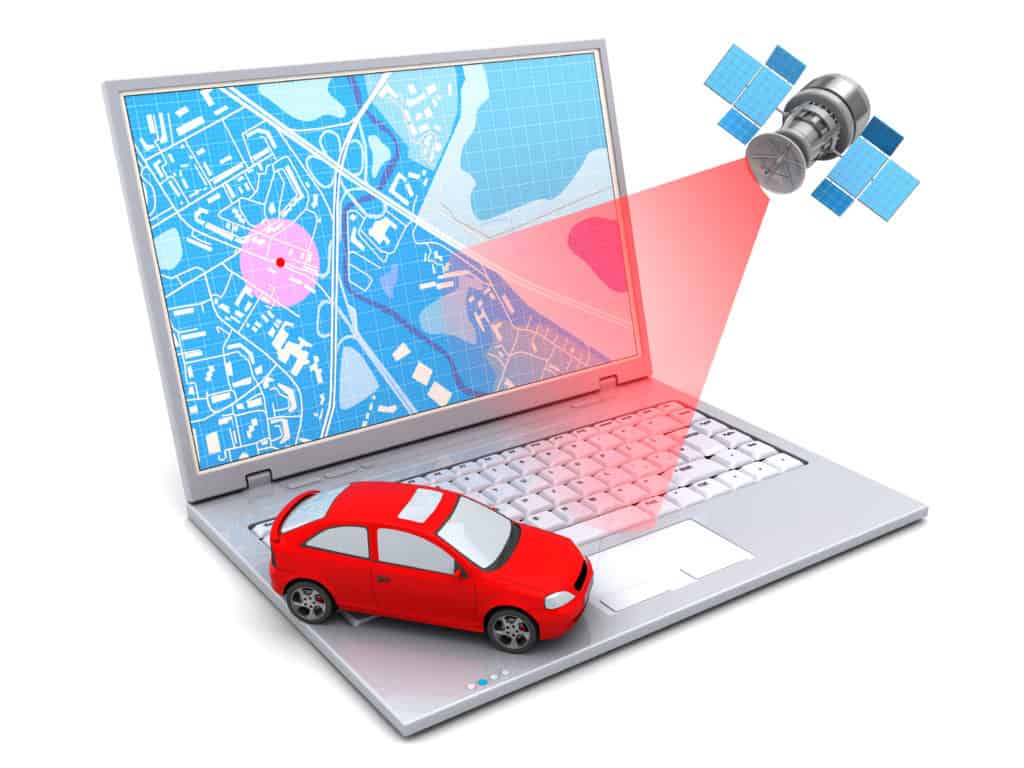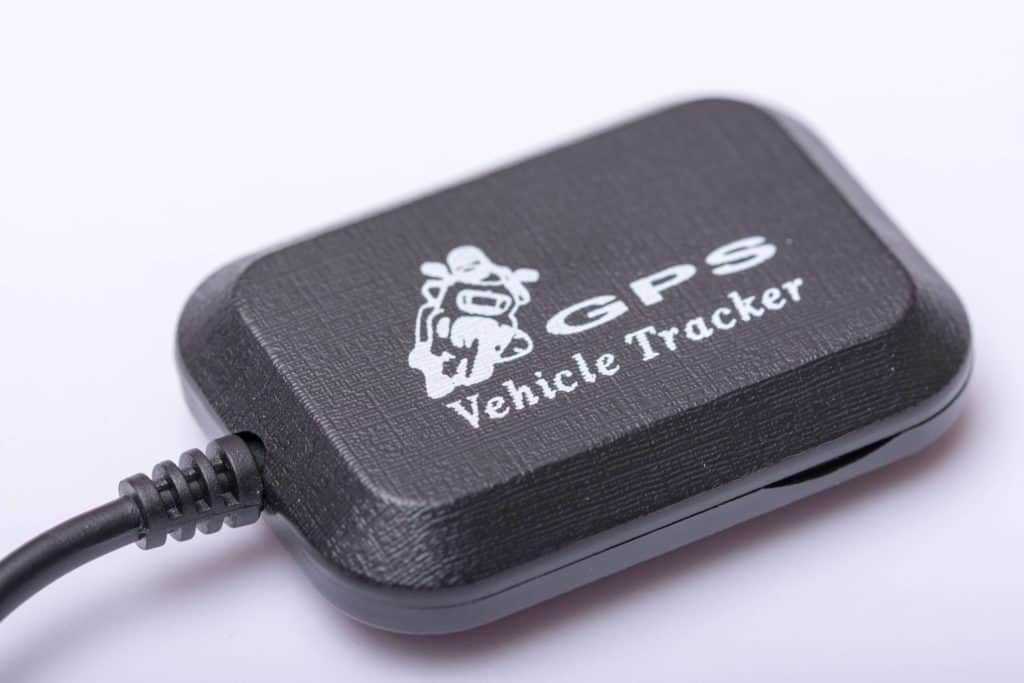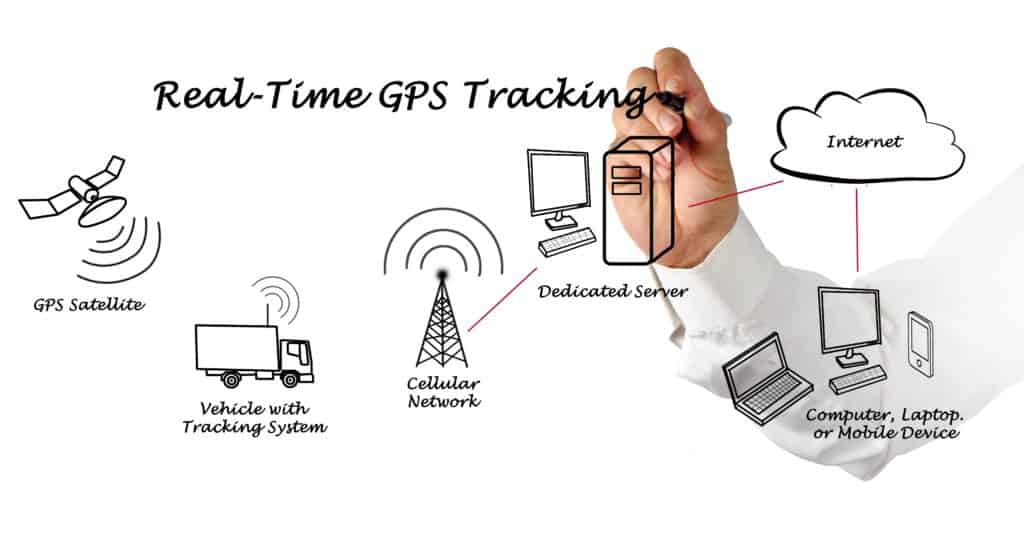As customers expect faster delivery times and service, accurate shipment tracking, and better customer service, you must keep up with the growing demand for GPS tracking systems.
The benefits of using passive GPS trackers are invaluable to any fleet business. Tracking each vehicle ensures you can make better decisions by increasing productivity, lowering costs, and improving safety.
What is a Passive GPS Tracker?
Passive GPS trackers, otherwise known as GPS data loggers, store travel information through a USB stick, memory card, or internal memory. With passive GPS tracking devices, you’ll receive information about the vehicle, such as distance traveled, active driving time, sudden acceleration or speed, and time and date.
Fleet businesses can take advantage of these GPS trackers because they can utilize the data gathered to monitor your employee’s driving habits.
How Does a Passive GPS Tracking Device Work?
The GPS vehicle tracking system is a satellite-based navigation system designed to track important information related to drivers and vehicles. Like all forms of GPS tracking options, it communicates with satellites, which then determines the position of your vehicle.
A gps data logger is typically installed to monitor vehicle routes, equipment performance, and driver behavior through gps satellites.
Typically a GPS tracker works in conjunction with GPS tracking software. This ensures that the information gets sent directly from the vehicle to the software.

How Does a GPS Tracking Device Collect and Exchange Data?
Data from a gps data logger can be tracked in three ways:
- The global positioning system
- Driver input data
- Diagnostic plug-ins
The gps information generated from the car or truck is bounced between various satellites, receivers, and computers that determine the precise latitude and longitude on the ground. Data is sent through the satellite system to the gps tracker to display and track important information like engine time, location, geofencing status, and more.
Coupled with a GPS tracking solution, a data logger does much more than track the vehicle’s location. Instead, it provides important metrics such as driver behavior, asset tracking, engine performance, vehicle speed, and movement towards job completion.
As a result, fleet businesses can utilize gps technology to make more informed decisions about their fleet, including asset availability, maintenance needs, route optimization, and utilization.
Why Choose Passive Vehicle Tracking Devices?
Using passive vehicle tracking devices allows fleet owners to better manage their company assets for improved customer service and security.
Depending on the type of passive gps tracker, you may receive updates from the device every two minutes using an internal battery system. These gps trackers are ideal for people looking to track their mileage for work or fleet businesses interested in improving driver’s behavior and reducing the misuse of their vehicles.
Some people use passive gps trackers to spy on a loved one because they’re easy to conceal and small.
With these trackers, you’ll be able to ensure your drivers are following their designated routes and exhibit good driving behavior. Since the passive device doesn’t provide real-time feedback, you’ll want to check the device regularly.
Features to Look for When Buying Passive GPS Trackers
When comparing one gps tracker to another, you may want to check for these features and consider what suits your needs:
- The battery lasts for a long time.
- Provides gps access to multiple countries like the U.S., Europe, and Canada
- Provides alerts when it comes to location information, speeding, parking, and distance traveled.
- It comes with tools and mounting hardware.
- It’s small and easy to set up.
- Information can be sent from the trackers to your cell phone through email, text, or app. Not to mention it should be compatible with both android and iPhone.
- Trackers should come with a sim card.
- The battery can be recharged.

Other Considerations When Selecting a Tracking Device
For fleet companies who want to find the best options for a tracker, we suggest looking for these specific features.
Cases
Having cases for your gps tracker can protect it from damage from the internal circuitry. In addition, the case and the trackers should be easy to install. Some include magnetic mounts allowing you to attack them nearly anywhere in your vehicle.
Geofencing
Many gps trackers will offer geofencing capabilities so that you’ll know when your vehicles and assets enter and leave a determined area. So, for example, you can better support your customers by alerting them when an asset has arrived at a warehouse or particular destination.
Proximity Alerts
Proximity alerts in your tracker are a crucial feature to consider. The device will provide notifications each time the vehicle reaches predefined geographical points on the map. This removes the need for companies to monitor their vehicle’s real-time location constantly.
Control
Typically advanced tracking systems have more settings that enable users to monitor the performance of their vehicles. A premium tracker typically offers convenient control through mobile app-based or online settings.
A basic tracker may require that you have a direct connection from the device to the computer, meaning you’ll need to download the information to your computer directly. However, an advanced tracker will only require a small monthly fee to access data via a cloud or web-based network.
Battery Life
Any gps tracker is only as good as the battery life that it has. Once a tracking device runs out of power, it won’t track the location, assets and perform any other functions. It’s important to note that the life of the battery varies on the number of settings being used, such as location reporting intervals. Know the battery capacity of your gps tracker is a good place to start.
Passive Tracking Device Pricing
Passive tracking devices are generally inexpensive. However, they do vary in price.
- Below $50: These trackers are typically better suited for personal use.
- $50 to $100: These tracking devices can be used for both personal and commercial use. They can track more driving information and typically can be easily attached to the vehicle’s OBD-II port.
- $100 and above: These tracking devices can track more diagnostic and driving information. In addition, they will have many forms of unique features to improve fleet management. This includes driver score, geofencing, and proximity alerts.
What Makes Passive GPS Tracking Systems Different from Active Tracking?
There are two types of GPS tracking systems: Passive and Active GPS trackers. Both are quite similar; however, the main difference is how they are stored.
Passive GPS trackers store vehicle information such as vehicle speed, GPS location and trigger events like ignition on/off and start/stop. Once the vehicle returns to the predetermined location, someone can remove the GPS unit and plug it into the host computer to download the data. Some are able to download via wifi.

Although passive systems have the capability of wirelessly transmitting data, these vehicle tracking systems don’t have real-time tracking capabilities. Passive vehicle tracking systems are usually less expensive because they typically require manual downloading to transmit the data. These intervals typically include 1 minute, 5 minutes, or 10 minutes.
In contrast, active GPS trackers capture the same data, except the data is transmitted through satellite or cellular networks. The advantage of using active GPS tracking devices is that they can typically be accessed through the web or any mobile device. They update location in real time with intervals of 1 minute, 5 minutes, or 10 minutes.
This means you’ll be able to access all of the information from the GPS data logger in real-time and remotely on your cell phone. However, the drawback of active GPS trackers is that you’ll be required to pay monthly fees to use the software and data transmission fees, whereas passive GPS trackers don’t require a monthly fee. And the cost for passive GPS tracking devices cost about 1/3 of active GPS trackers.
Passive devices have a limited amount of memory storage in comparison to active GPS trackers since they rely on cloud storage.
However, many modern GPS trackers implement both passive and active tracking features. This means it utilizes GPS satellites if a cellular network is available, and the device will send data to a server. However, if there isn’t any cellular network, the device will store the tracking information in internal memory. It can be downloaded later using a wifi network.
Why are GPS Tracking Devices Important for Fleet Businesses?
There are many benefits to utilize a GPS tracking system and installing GPS trackers onto your fleet. Here are some common benefits implementing a GPS tracking system can have for your business.
Increase Productivity
An active GPS tracking system will show exactly where each driver is at all times. This means you’ll have info and a record of what they were doing at each job or stop. For instance, if you notice that a driver isn’t showing any signs of movement for hours, you can crackdown on the idle time for drivers or check why the job is taking too long.
Gain Insight into Driver Behavior

GPS Trackers can also help you gain insight into driver behavior. For example, you can see if a driver is speeding or moving too slowly between routes. You can measure “Windshield Time” between stops and see if your drivers are taking the best routes.
Improve Safety
People who drive under a GPS tracking system typically drive more cautiously and are more aware while driving. This means they won’t display poor driving behavior or drive carelessly. In addition, fleet owners will identify when repair or maintenance is needed in their vehicles using this same device. Bundle GPS with safety Dash Cameras for the full fleet safety suite.
Knowing their real time location, whether it’s an emergency or a broken-down engine, you’re able to send roadside assistance in time to help your drivers.
Maintain and Track Compliance
Using a GPS tracking system helps fleet businesses maintain compliance. For example, you can meet rules and regulations that mandate safety and safe driving. Other examples include combining our GPS Solution with DVIR and ELD compliance regulations as well as our temperature monitoring system for Food Regulations.
Minimize Fuel Costs
Just by tracking your vehicle’s location, speed, and distance traveled, you can compare running times and daily miles. That way, fleet owners can provide drivers with optimal routes to lower mileage and reduce idle time. Integrate with fuel cards to show fuel purchases and GPS verified location. Without the right data you just can’t know if your fleet is being as efficient as it could be.
Theft Recovery
When it comes to a stolen vehicle, a GPS tracker is one of the tools you could have. You’ll have mapping data and will be notified with alerts to allow you to locate and track where the car is. This allows you to contact the authorities and tell them the precise location for faster theft recovery.
Lower Operational Costs
Having GPS trackers eliminates any questions or doubts about how drivers spend their time. Fleet owners and managers will identify any driver that uses a vehicle for unauthorized purposes or takes inefficient routes.
You’ll also be able to get an accurate readout from the GPS reporting data as to whether or not the driver truly worked the number of hours they claimed to have worked.
Frequently Asked Questions
Here are some of the most common questions about GPS tracking devices.
What is the Battery Life of an Active GPS Tracker?
As long as there is a constant power source (ie vehicle’s engine) it will run indefinitely. Without power batteries can last depending on the interval rate of data chosen. We’ve found that the battery life of most GPS trackers varies between two months to three years based on those factors. Many modern GPS trackers come with rechargeable batteries, meaning they can last a very long time if they are charged. Consult your fleet consultant when discussing the types of GPS units to use.
Do Active GPS Trackers Always Work?
The short answer is yes when a tracker can easily communicate with satellites that are in orbit. However, in some cases, like bad weather, high terrain or underground parking structures, it may affect the connectivity of the device.
In addition, our devices have a feature called ‘storing forward’ meaning it will still track all the information and once signal is reestablished it will ‘data dump’ all that information back into the cloud. On the reporting and mapping side, it will be as if never lost signal.
What’s the Best Way to Conceal an Active GPS Tracker?
It’s best to install these products somewhere where it’s difficult to access these trackers on the vehicle. This means that you should pick one that can be installed inside and under the dashboard. For other assets such as trailers, placing the GPS at the top of the trailer is common.

1 thought on “Definitive Guide of Passive vs Active GPS Trackers”
Im very happy to find this web site. I want to to thank you for ones time just for this fantastic read!! I definitely appreciated every part of it and i also have you saved as a favorite to see new information in your blog.